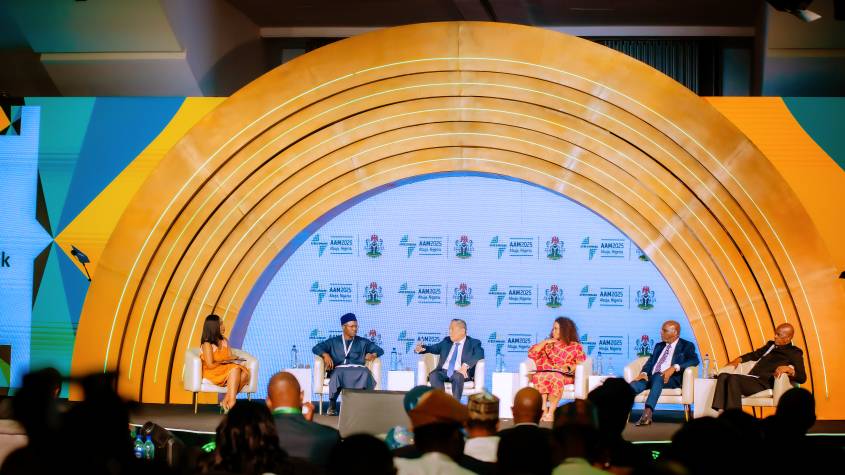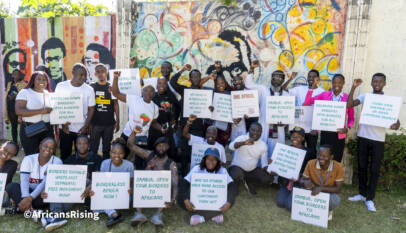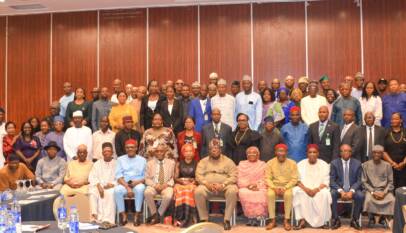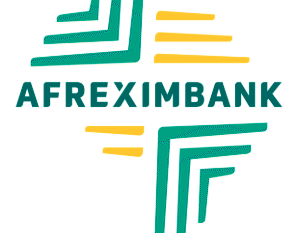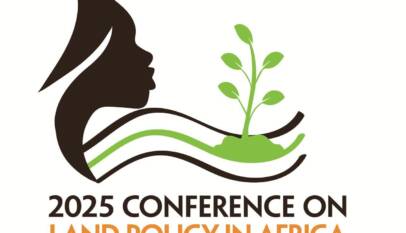Story of Afreximbank’s Three Decades of Resilient Pursuit of the Pan-African Dream
The 32nd Annual Meetings of the African Export-Import Bank (Afreximbank) marked a historic moment of reflection and intergenerational dialogue, bringing together the Bank’s past and present leadership to examine its transformation from a fledgling start-up into a cornerstone of Africa’s trade and development architecture.
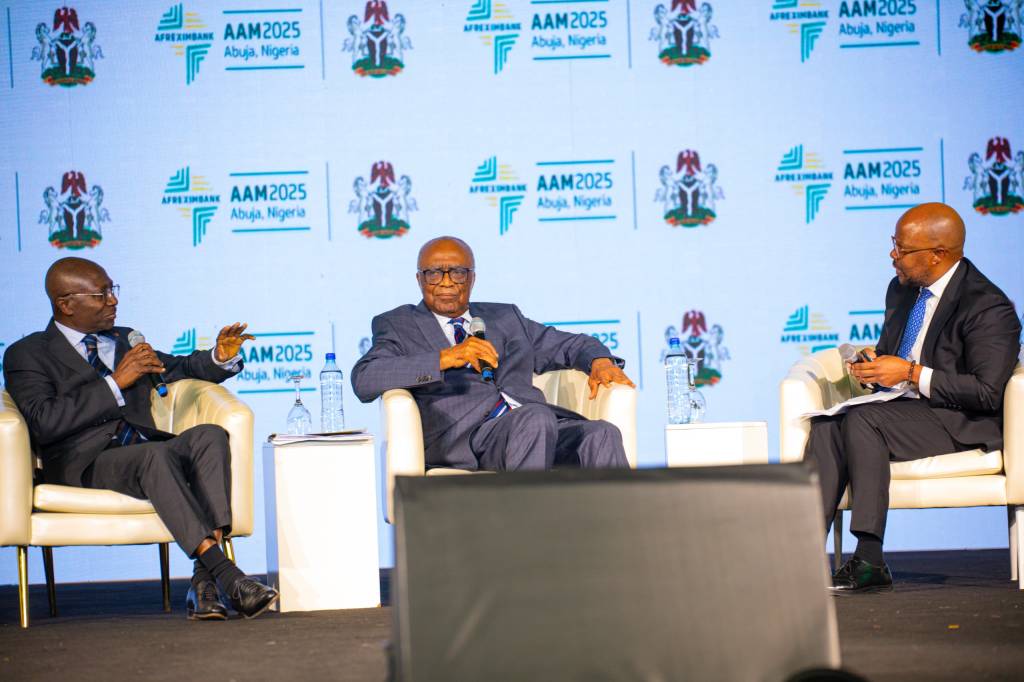
From its modest beginnings amid global economic realignment in mid-1990s, Afreximbank has grown into one of Africa’s most consequential multilateral financial institutions—renowned for its agility, innovation, and steadfast commitment to the continent’s economic transformation. Beyond facilitating trade, the Bank has played a pivotal role in building systems for continental financial integration, supporting local manufacturing and infrastructure development, and acting as a “first responder” in times of crisis, including during the COVID-19 pandemic.
The 2025 Afreximbank Annual Meetings (AAM2025) offered a unique opportunity for reflections on the Bank’s transformative 30-year journey. Central to these reflections were a conversation with Afreximbank’s former presidents, Mr. Christopher Edordu and Mr. Jean-Louis Ekra, and a session with those who benefited from the Bank’s evolution: Hon. Patrick Chinamasa, former Zimbabwean finance minister and Prof. Bart Nnaji, CEO of Geometric Power Limited.
Their reflections illuminated the core values that have sustained Afreximbank over three decades—African ownership, responsiveness, and an unwavering commitment to integration and self-reliance. Beyond reflection, the intergenerational dialogue offered a powerful insight into what it means to build an institution by Africans, for Africa. It also sought to safeguard the Bank’s legacy offering a uniquely African solution to African trade and development challenges.
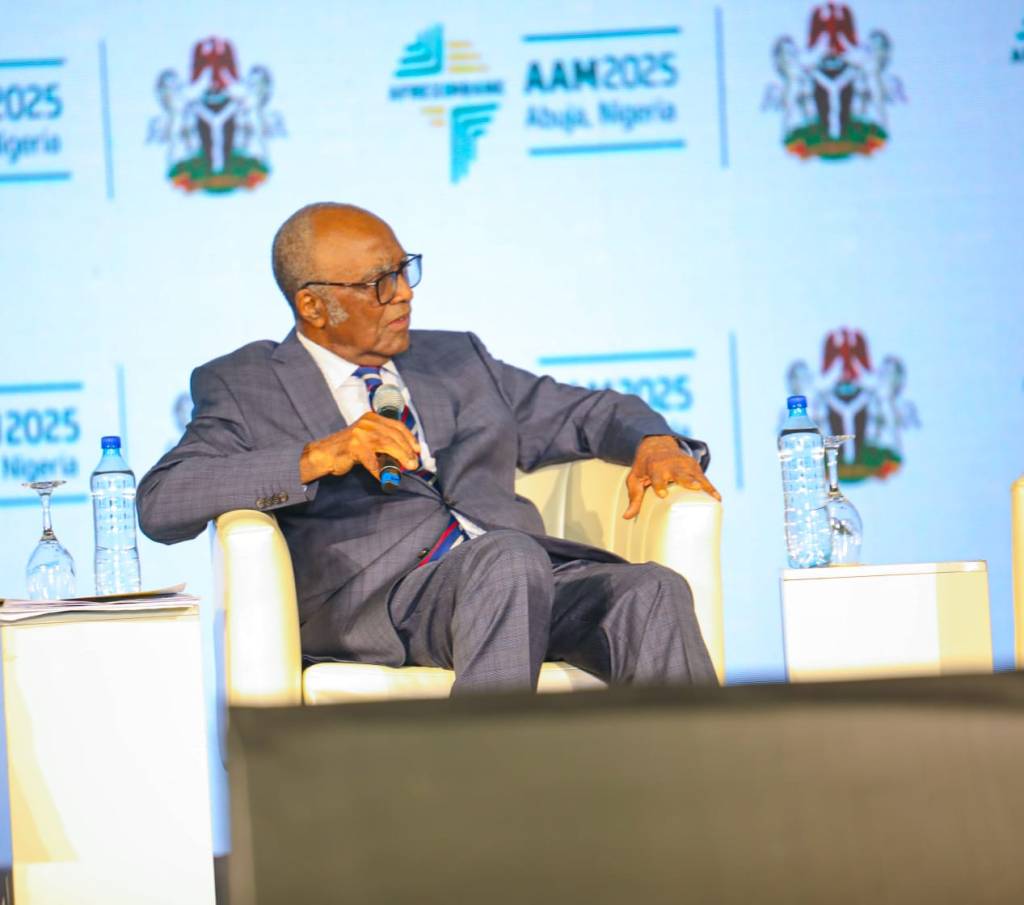
Edordu: The Genesis of a Continental Financial Giant
When Nigerian economist Christopher Edordu became the pioneer President of Afreximbank in 1993, his mission was clear and urgent: to tackle Africa’s limited access to short-term trade finance. Reflecting on the Bank’s early days, Edordu recalled convenings where stakeholders debated what was then considered a bold and ambitious idea: the creation of a continental trade bank purpose-built to serve Africa’s unique needs.
“The original idea of the Bank was as a short-term financing institution. But now it has matured. It wasn’t originally intended to be a development bank, but much of what we do now is development-focused. We are constantly adapting to change. At the core of our DNA is resilience; the capacity to respond to difficulties and deal with painful conditions,” Mr Edordu explained.
The pioneer Afreximbank chief recalled that, at the time of the Bank’s establishment, only a handful of African countries had functioning export-import banks—leaving little precedent to guide Afreximbank’s foundational vision and strategy. Three decades later, Edordu reflected with pride on how the Bank has evolved well beyond its initial conception, emerging as a systemic institution now deeply embedded in the fabric of Africa’s economic architecture.
“I was part of the very first efforts to set up the Bank. At the time, I was working at the Nigerian Export-Import Bank; perhaps the only in Sub-Saharan Africa, or even the continent. We held several meetings and eventually the final one where stakeholders exchanged ideas on what eventually became Afreximbank. Looking at what President Oramah has done and what the Bank has become, it is now completely different from what was originally imagined,” he said.
Beyond resilience, Mr. Edordu emphasized that Afreximbank’s long-term sustainability hinges on its ability to innovate. “Resilience alone may not be enough—but it is a powerful foundation. Africa’s challenges are numerous, and listing them all is almost futile. What truly matters is the capacity to respond, to endure hardship, and most importantly, to innovate. Once the Bank cultivates a culture rooted in resilience and innovation, it will always be equipped to meet the demands of the future.”
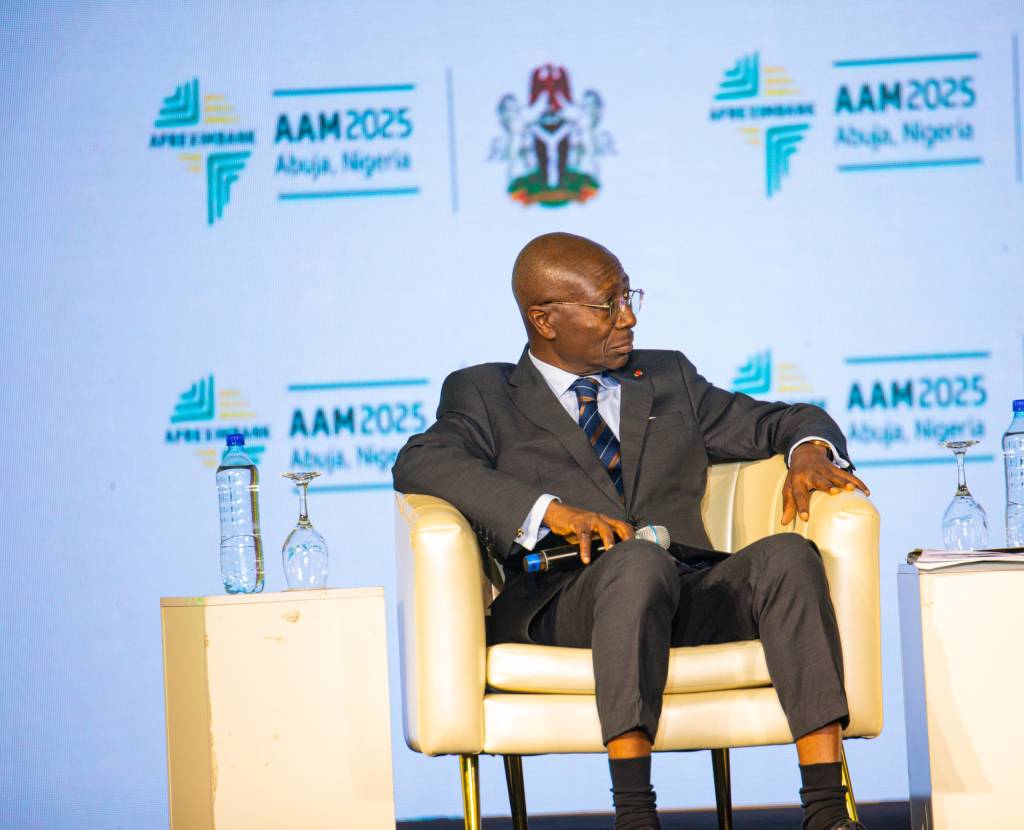
Ekra: Succeeding Against All Odds
Ivorian banker Jean-Louis Ekra became Afreximbank’s second president in 2005. Ekra reflected on the formidable challenge of leading a young, African-led institution in a time of widespread skepticism. “Adversity is part of the story. It wasn’t just about external geopolitical or economic pressures—there was also internal doubt. Many questioned whether Africans could succeed at this scale. Afro-pessimism was real. People didn’t believe we could do this. So, we had to shift the narrative—from asking ‘why can’t we?’ to ‘how can we?’”
Ekra recalled his initial doubts upon joining the Bank, questioning whether such an ambitious vision could truly take root within Africa’s challenging financial landscape. Yet, under Edordu’s visionary leadership the early foundations of the institution were laid. As Ekra later rose to lead Afreximbank himself, he played a pivotal role in institutionalizing a culture rooted in problem-solving, innovation, and tenacity—principles that continue to define the Bank’s trajectory today.
“I [first] met President Edordu on the panel where he interviewed me, and I kept asking myself, ‘What would I actually do in such a place?’ Technically, I felt qualified—but I had never worked in an environment like this, especially not an African startup. Eventually, I was successful in my application. President Edordu gave me just one month to report—it was tough! When I arrived in 1996, the Bank was still in its startup phase. For me, it was the first time I was truly building something from the ground up. But yes, I was simply following his lead.”
Ekra also underscored the vital role of institutional culture and generational continuity in Afreximbank’s journey from a fledgling idea to a systemic force within Africa’s economic architecture. “We must ensure that younger generations entering the Bank understand its culture and mission. The external environment keeps shifting, but what seems to evolve far too slowly is the world’s recognition of our continent’s true place. That’s why we need a culture of resilience and determination—and that’s what we must pass on.”
Both presidents emphasized that resilience was not just a theme — it became the very ethos of Afreximbank. From navigating Zimbabwe’s economic isolation to addressing financial disruptions in Kenya and supporting the establishment of production hubs across the continent, the Bank consistently delivered tailored solutions that kept African trade moving forward. Through each challenge, Afreximbank demonstrated its ability to adapt, innovate, and stand firmly with its shareholder countries.
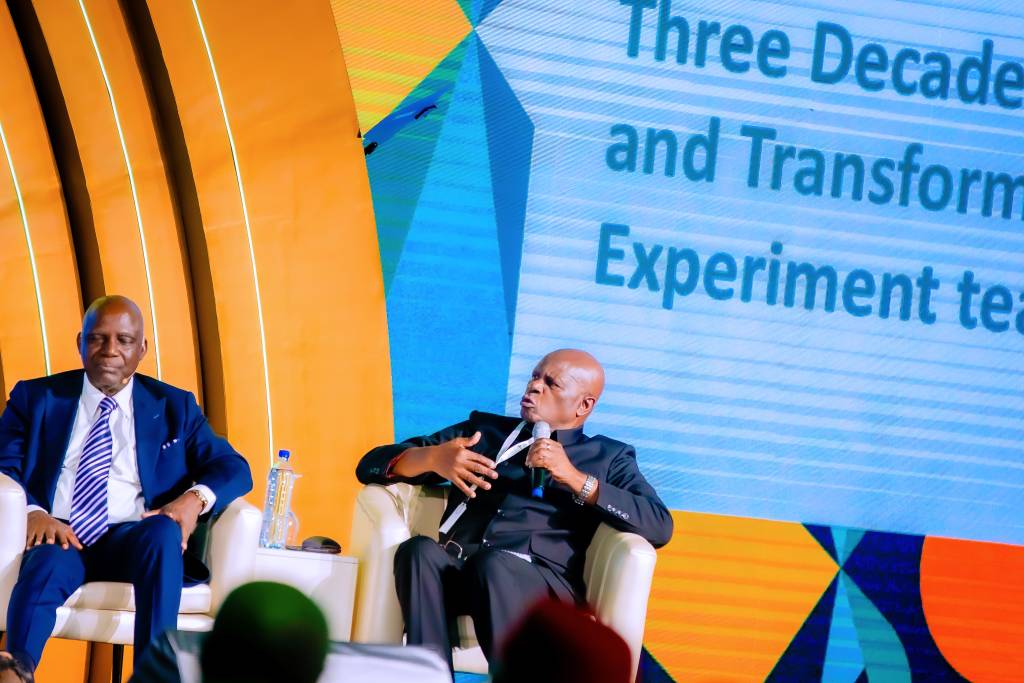
Zimbabwe’s Rescue by Afreximbank
The historical reflections by the former presidents seamlessly transitioned into powerful testimonies about Afreximbank’s real-world impact, as shared by some of its direct beneficiaries. Hon. Patrick Chinamasa, Zimbabwe’s former Minister of Finance, recounted how Afreximbank stood firmly by Zimbabwe during a period of profound economic turmoil and international isolation, describing the Bank’s intervention as a lifeline that helped the country navigate its most challenging times.
Chinamasa recalled while global financial institutions assessed Zimbabwe solely through a narrow lens of risk, Afreximbank demonstrated a deeper understanding of the country’s political and economic realities. “In our darkest moments, Afreximbank stood by us. They stepped in without ulterior motives, understanding our context and supporting us when others walked away. Zimbabwe faced a lot of difficulties due to international sanctions; Afreximbank believed in us. They stepped in when the rest of the world said, ‘Don’t go to Zimbabwe.’”
The former finance minister said Afreximbank’s support to Zimbabwe transcended financial assistance. At a time when multilateral lenders had pulled out and Zimbabwe was widely classified as a high-risk territory, Afreximbank remained steadfast. “They didn’t come to Zimbabwe to lecture us. They didn’t ask us to privatize our state-owned enterprises first. They understood the pain we were going through, and they stood by us. That’s why I say Afreximbank didn’t just support us; they believed in us.”
Chinamasa stressed the urgency for Africa to break free from its dependence on raw material exports and pivot toward value addition, industrialization, and the development of robust intra-African supply chains. “We can no longer afford to be mere suppliers of raw materials to the world. The future lies in building industries, retaining value on the continent, and trading more with ourselves—and Afreximbank is uniquely positioned to help us realize that vision.”
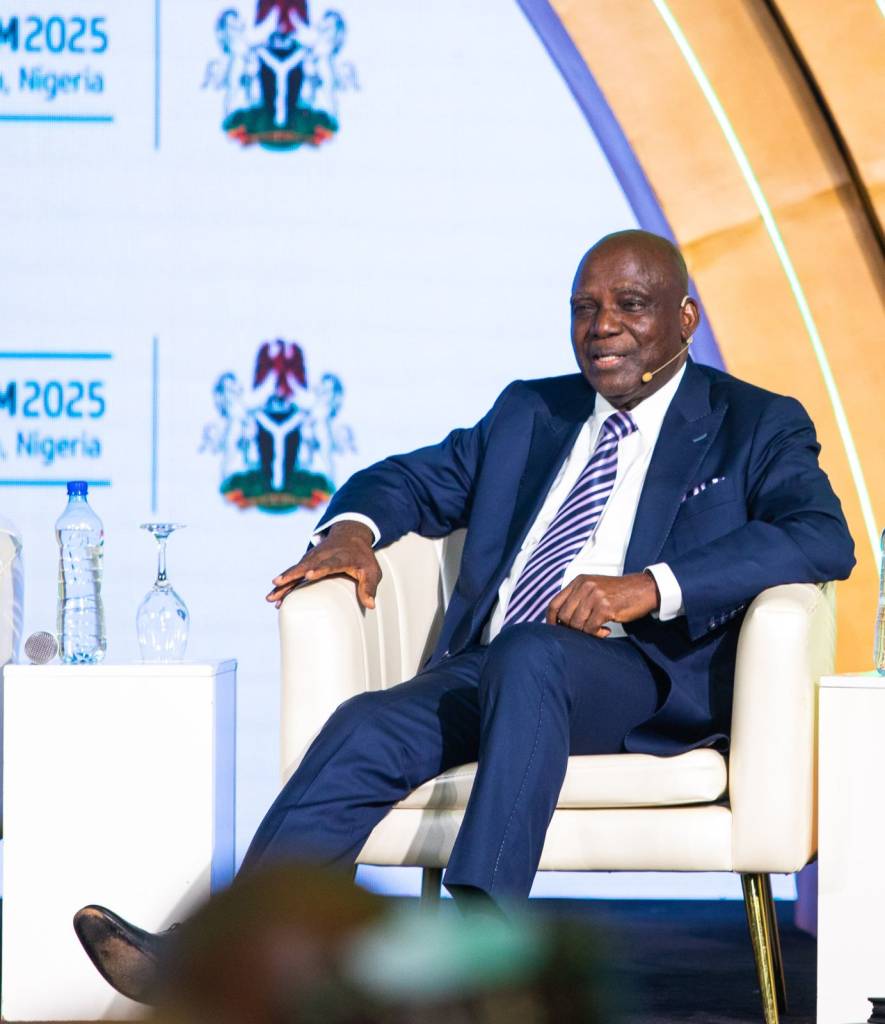
“Afreximbank Not Just Financing Projects; They’re Building Ecosystems”
Prof. Bart Nnaji, CEO of Geometric Power, praises Afreximbank’s reliability recounting the near-collapse of their Aba Integrated Power Project in Nigeria, caused by breaches in concession agreements by the government. “The project was 95% complete. We approached multiple banks, but none would support us—until Afreximbank stepped in. Their timely intervention not only saved the project but also revitalized an entire industrial ecosystem. Today, that energy powers factories, schools, hospitals. It’s not just financing; it’s transformation.”
Prof. Nnaji emphasized that Afreximbank’s greatest strength lies in its distinctly African identity — not only in terms of ownership, but in its unwavering commitment to the continent’s priorities. Unlike many multinational development institutions, which are often slowed by competing interests of external stakeholders, Afreximbank operates with a singular focus on Africa’s development. This clarity of purpose, he noted, empowers the Bank to take bold, timely actions where others are reluctant — positioning it as a truly transformative force on the continent.
“They have taken the fate of Africa in their own hands, and they are moving forward. That’s why they are able to take decisions. They’re very rigorous in their processes, but with that, they are confident that what they are doing is for the advancement of the continent,” Prof. Nnaji emphasized.
Prof. Nnaji underscored the urgency of developing robust African value chains, particularly in manufacturing, highlighting the fact that the Bank’s interventions have gone far beyond conventional financing—serving as a catalyst for industrialization, expanding access to reliable energy, and fostering intra-African trade. “Afreximbank is not just financing projects; they are building ecosystems.”
From the founding presidents to today’s management, Afreximbank’s journey over the past three decades has proven that African-led institutions can confront the continent’s most complex challenges with grit, innovation, and strategic clarity. What began as a fledgling trade financier has evolved into a systemic development institution—an embodiment of African ownership, purpose-driven leadership, and regional solidarity.The Afreximbank story affirms a powerful truth: Africa can, and must, build for itself.

